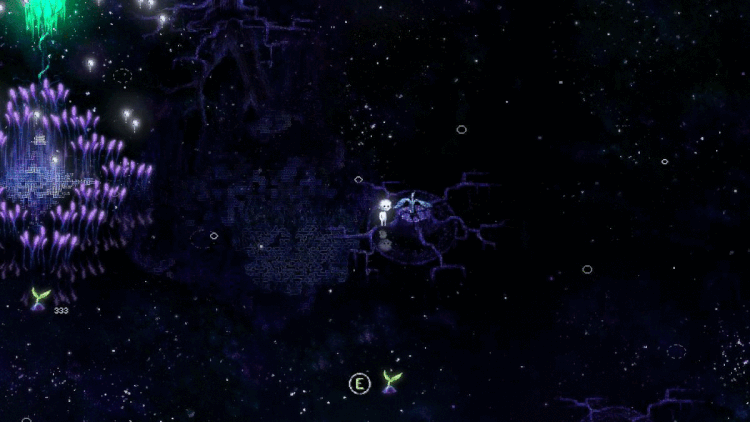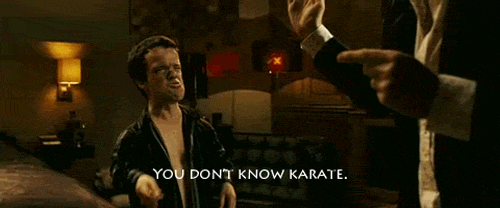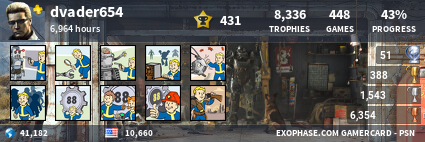angrymonkey said:Wouldn't it just be part of the hype machine? Publishers keep putting info etc. out to get that train moving and then the game press picks up on it. They cover what's hot for them or their readership.
But I'm guessing that if a certain game put out continual info it wouldn't be picked up and put on page 1 continually. So it's just the most popular games getting the most coverage? Does that mean we get more sequels coverage over new IP?

gamingeek said:angrymonkey said:Wouldn't it just be part of the hype machine? Publishers keep putting info etc. out to get that train moving and then the game press picks up on it. They cover what's hot for them or their readership.But I'm guessing that if a certain game put out continual info it wouldn't be picked up and put on page 1 continually. So it's just the most popular games getting the most coverage? Does that mean we get more sequels coverage over new IP?
oftentimes but not necessarily. sometimes massive hype is generated for new IPs (maybe on the strength of previous efforts by the same developer) as with say Bioshock, Mass Effect and Gears of War. Sometimes even for a new IP from an unknown developer if the publisher is big enough, like for example Little Big Planet.
Sequels naturally need less effort since if the previous game is highly regarded the hype is much easier to generate
Doesn't that lead to the most hyped games getting even more hype? And the editorial staff are essentially choosing what they deem most exciting to them? And since they fall into a certain demographic, you have the same sort of games being pushed all the time?

---
Tell me to get back to rewriting this site so it's not horrible on mobile
gamingeek said:Doesn't that lead to the most hyped games getting even more hype? And the editorial staff are essentially choosing what they deem most exciting to them? And since they fall into a certain demographic, you have the same sort of games being pushed all the time?
Yep. Like tv when everyone's covering the exact same story - they just try to put their own spin on it . I have a relation in promotional work and she's all about who's hot, who or what has the media attention - and not just for work - it's part of her personality. She wants to know what everyone(or the cool people) are into and doing and derides things that are not polpular. ( who's that - she's a nobody). You got to sell her on something before she will care - what's their hit song, what show or celebrity is this connected to etc. And who cares what personal niche thing you're interested in, what's your feeling on this item or issue that everyone else is talking about?
The reviewers are the icing on the cake of the promotional push for the game and if it doesn't do well - then they're really scratching their heads. It's like if all the movie reviewers were teenage boys - they'd have a great idea on how the summer blockbusters will perform and not a clue about chick flicks. And if the audience is largely teenage boys, people will start thinking that the only market possible for movies is teenage boys and blockbusters the best way to go. And the only movies worth hyping. It's all connected.
I don't think they need hype gauges. How does the fashion industry work? I don't think they take a poll on what the hot color should be that year. They decide for you.

It's simple, it is a buisness, they need to find what stories will bring in the biggest audience. When you see week long cover stories or major exclusives on a game that is big for the site cause they become the focus for all the people that are excited for that one game.
angrymonkey said:gamingeek said:Doesn't that lead to the most hyped games getting even more hype? And the editorial staff are essentially choosing what they deem most exciting to them? And since they fall into a certain demographic, you have the same sort of games being pushed all the time?
Yep. Like tv when everyone's covering the exact same story - they just try to put their own spin on it . I have a relation in promotional work and she's all about who's hot, who or what has the media attention - and not just for work - it's part of her personality. She wants to know what everyone(or the cool people) are into and doing and derides things that are not polpular. ( who's that - she's a nobody). You got to sell her on something before she will care - what's their hit song, what show or celebrity is this connected to etc. And who cares what personal niche thing you're interested in, what's your feeling on this item or issue that everyone else is talking about?
The reviewers are the icing on the cake of the promotional push for the game and if it doesn't do well - then they're really scratching their heads. It's like if all the movie reviewers were teenage boys - they'd have a great idea on how the summer blockbusters will perform and not a clue about chick flicks. And if the audience is largely teenage boys, people will start thinking that the only market possible for movies is teenage boys and blockbusters the best way to go. And the only movies worth hyping. It's all connected.
I don't think they need hype gauges. How does the fashion industry work? I don't think they take a poll on what the hot color should be that year. They decide for you.
Great post, interesting to read.
I think it's inevitable that the most popular games get the most coverage. I wonder though for new IP, how do you tell its popular when its a new series with a game never released? Who decides that its worthy of hype or not?
I find it sad that for some games you get editorial staff aggressively going after interviews with developers or pushing for media and exclusives. And then with some games you basically get nothing and it's not until some writer goes out of his way to track someone down, that you get to read something.
Dvader said:I know one site that spends insane amounts of type hyping weird random games no one likes to play like Zangeki no Reginleiv, why do they do it?
Do we qualify as the media now? 
Dvader said:
It's simple, it is a buisness, they need to find what stories will bring in the biggest audience. When you see week long cover stories or major exclusives on a game that is big for the site cause they become the focus for all the people that are excited for that one game.
But aren't the media essentially making and breaking games with the coverage they produce? A well hyped game's coverage can last months if not years. That's essentially an overlong marketing campaign. Who decides what's big? And what happens to make all big media outlets jump in like a massive gang bang?
If there was an experiment and all the usual sites gang banged a game they normally wouldn't, would it perform better I wonder?

There is no such thing as game journalism. The guy (Parrish?) that runs 1up said as much himself when he appeared on The Cranky Geeks last year. He said that since he accepts junkets from the game companies (like all game critics) he doesn't consider himself a journalist. They are too close to their subjects.
So coverage is just a business decision for these outlets.

aspro said:There is no such thing as game journalism. The guy (Parrish?) that runs 1up said as much himself when he appeared on The Cranky Geeks last year. He said that since he accepts junkets from the game companies (like all game critics) he doesn't consider himself a journalist. They are too close to their subjects.
So coverage is just a business decision for these outlets.
We need to get some of these goodies.

I wonder how the language barrier affects things?
If there are japanese games and western outlets have no effective way of communicating with them, what can they do?
Is it a case of the Japanese developers/publishers not doing enough to get attention and so the western outlets concentrating more on products they can easily get access to?

gamingeek said:I think it's inevitable that the most popular games get the most coverage. I wonder though for new IP, how do you tell its popular when its a new series with a game never released? Who decides that its worthy of hype or not?
Gotta start with the publishers. They must do their focus groups and projections and if they don't want to hype it, it's done before it starts. What's the last really out of nowhere game with no hype that became super popular? Does that even happen nowadays? When star wars came out there was no hype. No toys, no publicity. That was pure word of mouth hyping that movie. There was no blockbuster machine around yet to push these things with burger king side promotions etc. That developed later. Like gaming as well - where were arcade games advertised? They just put them out there.
gamingeek said:Is it a case of the Japanese developers/publishers not doing enough to get attention and so the western outlets concentrating more on products they can easily get access to?
I think there is just a lot of people deciding what will sell or won't sell. And good luck changing their mind. They like to talk like it's a science and they know how products will be received but there are always suprises. Reminds of a music exec that credited the success of an artist's first hit album less to the musician and more on their idea of how and when to release it. Like the music environment wasn't ready for it. Like the public is some sort of homogenous entity that is solely led around by hype and has to be prepared to receive anything like an adult doling out things to children.
aspro said:There is no such thing as game journalism. The guy (Parrish?) that runs 1up said as much himself when he appeared on The Cranky Geeks last year. He said that since he accepts junkets from the game companies (like all game critics) he doesn't consider himself a journalist. They are too close to their subjects.
So coverage is just a business decision for these outlets.
Then again there are very few real journalsits so you can't hold it against the gaming media too much. 

angrymonkey said:Makes me think of when stephen king did books under his bachman name. Nobody really knew about them until the truth was revealed. Brand recognition over quality at that point. Plus I imagine the company didn't or couldn't push the books - it's not like they could send him out on author tours.gamingeek said:I think it's inevitable that the most popular games get the most coverage. I wonder though for new IP, how do you tell its popular when its a new series with a game never released? Who decides that its worthy of hype or not?
Gotta start with the publishers. They must do their focus groups and projections and if they don't want to hype it, it's done before it starts. What's the last really out of nowhere game with no hype that became super popular? Does that even happen nowadays? When star wars came out there was no hype. No toys, no publicity. That was pure word of mouth hyping that movie. There was no blockbuster machine around yet to push these things with burger king side promotions etc. That developed later. Like gaming as well - where were arcade games advertised? They just put them out there.
gamingeek said:Is it a case of the Japanese developers/publishers not doing enough to get attention and so the western outlets concentrating more on products they can easily get access to?
I think there is just a lot of people deciding what will sell or won't sell. And good luck changing their mind. They like to talk like it's a science and they know how products will be received but there are always suprises. Reminds of a music exec that credited the success of an artist's first hit album less to the musician and more on their idea of how and when to release it. Like the music environment wasn't ready for it. Like the public is some sort of homogenous entity that is solely led around by hype and has to be prepared to receive anything like an adult doling out things to children.
It almost sounds like it takes a hit, like music games breaking out, then everyone makes music games, then everyone hypes the sales of music games and their success.
So Halo for instance, became a big success as a launch game, then FPS became meat and potatoes for the Xbox audience. Or even back in the 2D games when mario became a sucess, everyone started making more platformers.

gamingeek said:So Halo for instance, became a big success as a launch game, then FPS became meat and potatoes for the Xbox audience. Or even back in the 2D games when mario became a sucess, everyone started making more platformers.
Or maybe also, that idea or concept that someone has been trying to pitch for awhile suddenly becomes thought of as a good idea.









I was noticing a website I visit regularly was focusing on a very big game for successive days (no, not 1up) and I was wondering. Well they choose to focus on a big blockbuster type game and give it the kind of exposure some publishers can only dream of.
So how is this decision made? Do the editorial staff go out and court the publisher, do game makers lobby media outlets for coverage and then the editors can pick and choose what they deem appropiate to cover?
What if a media outlet did this sort of blanket coverage for a game on one platform, yet didn't do the same for another big game on an opposing platform?
Do you feel that genre coverage is equal or that certain genres get more coverage then others?